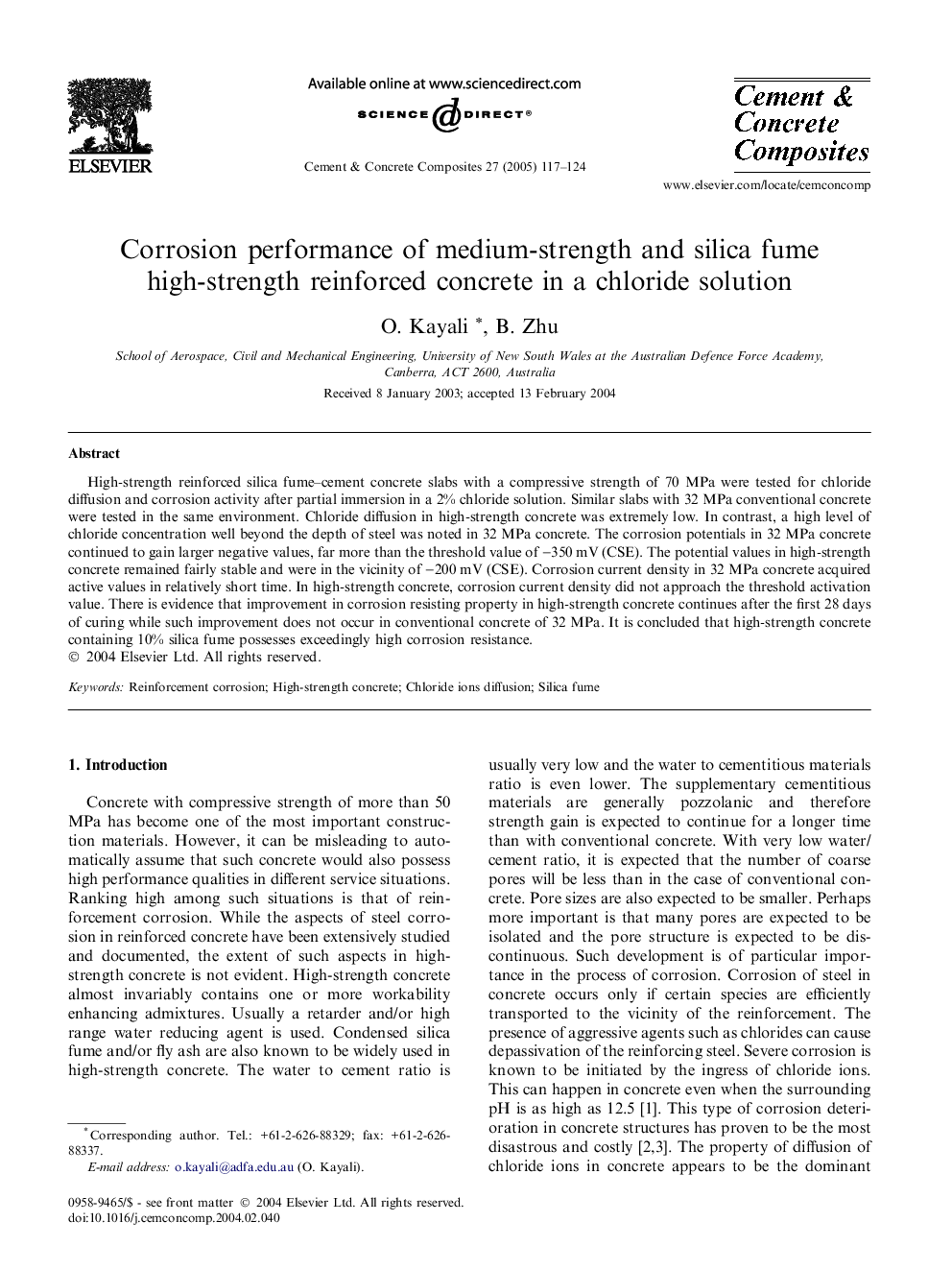| Article ID | Journal | Published Year | Pages | File Type |
|---|---|---|---|---|
| 10621971 | Cement and Concrete Composites | 2005 | 8 Pages |
Abstract
High-strength reinforced silica fume-cement concrete slabs with a compressive strength of 70 MPa were tested for chloride diffusion and corrosion activity after partial immersion in a 2% chloride solution. Similar slabs with 32 MPa conventional concrete were tested in the same environment. Chloride diffusion in high-strength concrete was extremely low. In contrast, a high level of chloride concentration well beyond the depth of steel was noted in 32 MPa concrete. The corrosion potentials in 32 MPa concrete continued to gain larger negative values, far more than the threshold value of â350 mV (CSE). The potential values in high-strength concrete remained fairly stable and were in the vicinity of â200 mV (CSE). Corrosion current density in 32 MPa concrete acquired active values in relatively short time. In high-strength concrete, corrosion current density did not approach the threshold activation value. There is evidence that improvement in corrosion resisting property in high-strength concrete continues after the first 28 days of curing while such improvement does not occur in conventional concrete of 32 MPa. It is concluded that high-strength concrete containing 10% silica fume possesses exceedingly high corrosion resistance.
Related Topics
Physical Sciences and Engineering
Engineering
Industrial and Manufacturing Engineering
Authors
O. Kayali, B. Zhu,
